"It's my absolute passion in life": The amateur sportswomen changing Britain's golf clubs
Genelle Aldred never expected to start playing golf.
Before Covid-19, the writer and broadcaster always preferred going to the gym. Then, when golf was one of the first sports to shake off lockdown restrictions, she finally decided to try it. That was in 2020, and now she plays at Finchley Golf Club up to five times a week.
“Golfing is such a big community,” she tells me over the phone (her schedule is jam-packed and this fifteen-minute call is all she can spare). It’s not just her social life that it’s improved, either. “People don’t always like strong women, confident women, competitive women,” she muses – but golfing has helped her be all of those things. “It’s a good game for mental strength, because you’re playing against yourself every time.”
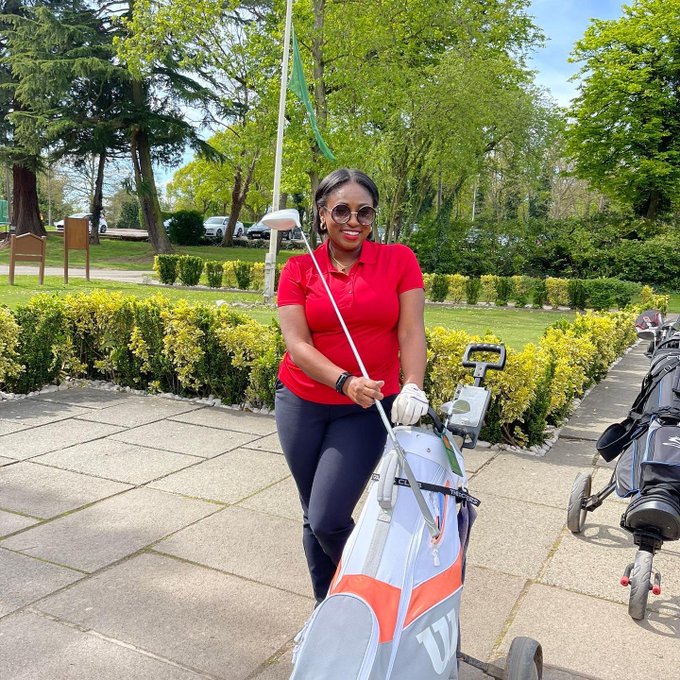 Genelle at Finchley Golf Club. Photo: Anonymous
Genelle at Finchley Golf Club. Photo: Anonymous
And in 2020, a lot of other women seemed to agree. Research by golf’s governing body, the R&A, found that 1.5 million women played at least one full round that year, causing them to go from making up 14 per cent of golfers to a still low but nonetheless impressive 28 per cent.
Brenda Perzow would love to see those numbers rising even further. The current Ladies’ Captain at Coombe Wood Golf Club, she started playing after having retired.
“I just looked out the window and saw a golf course,” she shrugs. “But once I started, I got hooked.”
Women who got hooked permanently during the pandemic, however, are hard to find: Genelle is the only one who comes forward to be interviewed. This may be because when clubs first reopened there was nothing else to do; now, with lockdown restrictions a thing of the past, many will have gone back to their old hobbies.
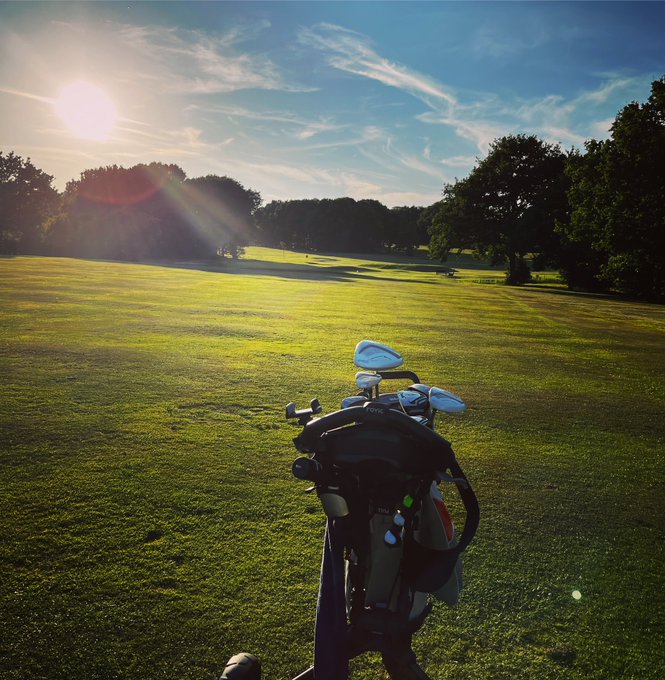 Finchley Golf Club. Photo: Genelle Aldred
Finchley Golf Club. Photo: Genelle Aldred
Perhaps for some the new sport was too tough with too little gain, a feeling that Brenda can relate to. “I’d get very angry with myself,” she says. “There were times when I’d walk off in tears because I just couldn’t do it. But I found out about myself and my weaknesses, so it was very much a learning curve to control these emotions, to say: oh well, it was a bad shot, on to the next one.
“I’m still not a great golfer,” she says cheerfully. “But I go out every time thinking I’m going to do better.”
It’s a mentality that golf clubs themselves have had to adopt, with varying degrees of success.
Like most sports, golf does not have a stellar history when it comes to gender equality. Women have had to fight to become club members, to play on the best courses, and even to enter the clubhouses. It wasn’t until 2019 that Glasgow Golf Club became the last UK venue to scrap its men-only policy, and several such venues still exist in the U.S. And in 2020, only 15 per cent of club members were female.
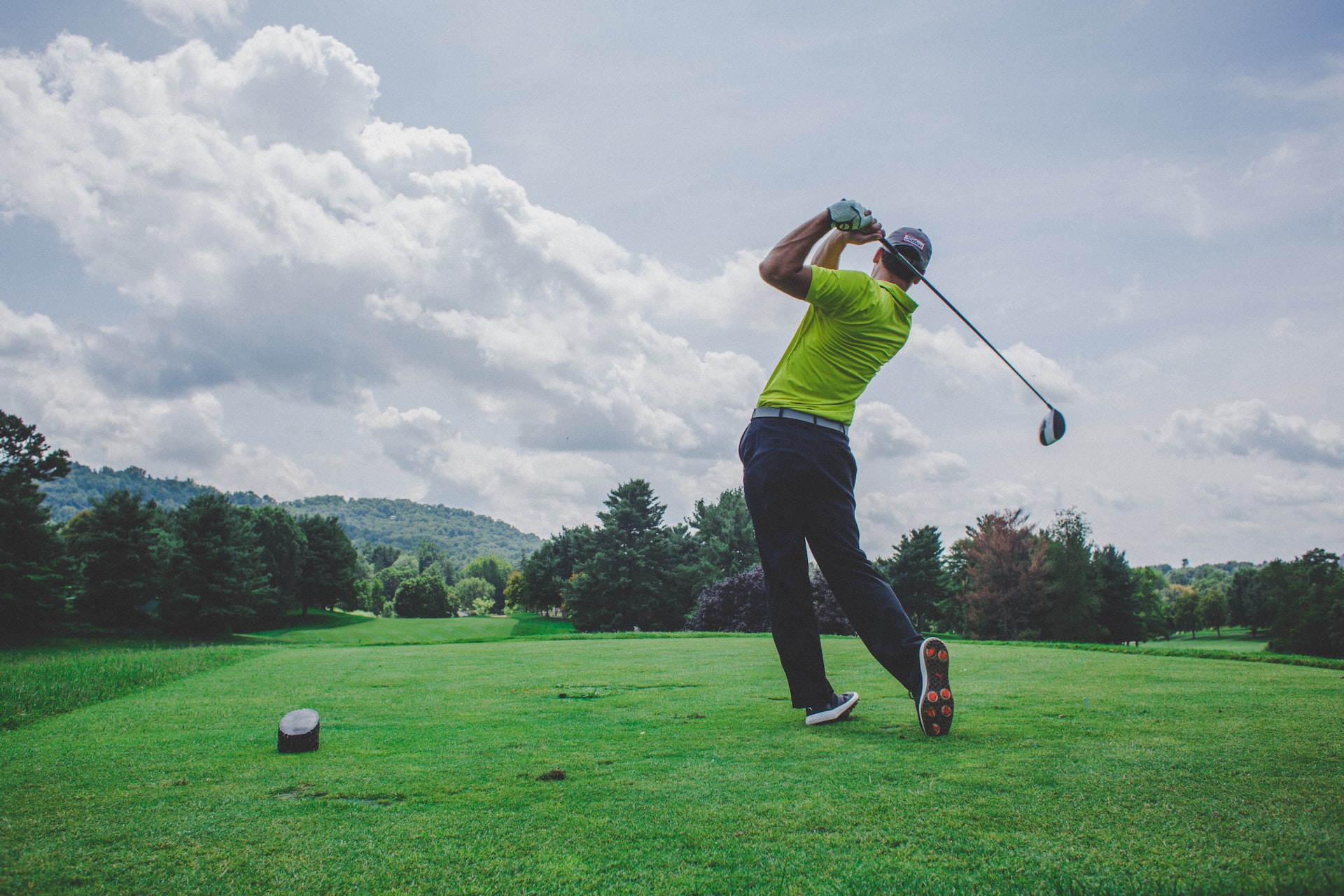 Photo: Courtney Cook (Unsplash)
Photo: Courtney Cook (Unsplash)
Lynne Mitchell, who works as an assistant in a property firm, was initially driven to quit the sport soon after she started playing in the 1990s.
“It was definitely a male dominated sport and I just didn’t feel comfortable,” she explains. “The women were seen as not as good, as second-class citizens.”
Taryn Lombard, a keen golfer since her childhood in South Africa, has similar memories. “The first club I joined in England – that was about 20 years ago – they had sections in the bar that women weren’t even allowed to buy drinks at.”
Thankfully she’s had no such problems at her current club, and her love of golf is as strong as ever. “What really appealed to me when I was growing up was the difficulty of the game – I just loved how complex it was.” It is, she adds, “the most amazing intellectual and physical game you’ll ever play… it’s my absolute passion in life. I love it.”
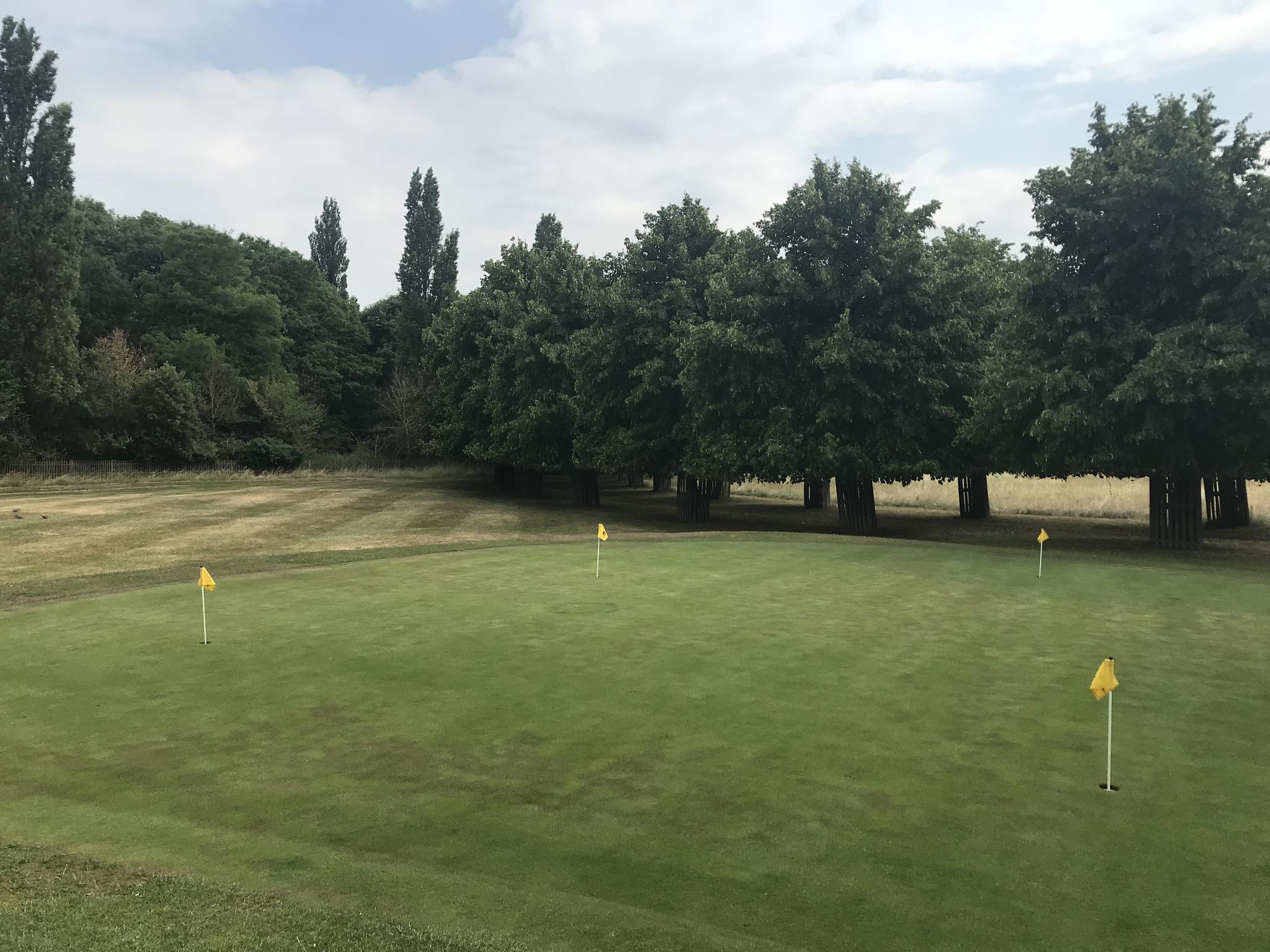 Hampton Court Golf Club. Photo: Emma Curzon
Hampton Court Golf Club. Photo: Emma Curzon
However, it’s not always a passion that women can take up lightly. Lessons, equipment and club memberships can all be expensive, and a single round can take up to four hours – too long for many people who are already juggling careers and childcare.
It wasn’t until four years ago that Lynne, now 56, had enough time and money to give golf a second chance. This time, her experience was much more positive.
“I feel very comfortable here,” she explains over glasses of lemonade at the Hampton Court Palace clubhouse. “The world has changed – it’s all about equal opportunities, and I don’t think venues can afford to be seen as discriminatory.”
Meanwhile, as a sportswoman of colour, Genelle’s experience has been mixed: “I went to an event once, and my friend and I were the only Black women there.” But, she adds, “I do feel really welcome at the club I’m in. Our vice-captain is Black, there’s the two friends I play with… you don’t feel like you’re the only one.”
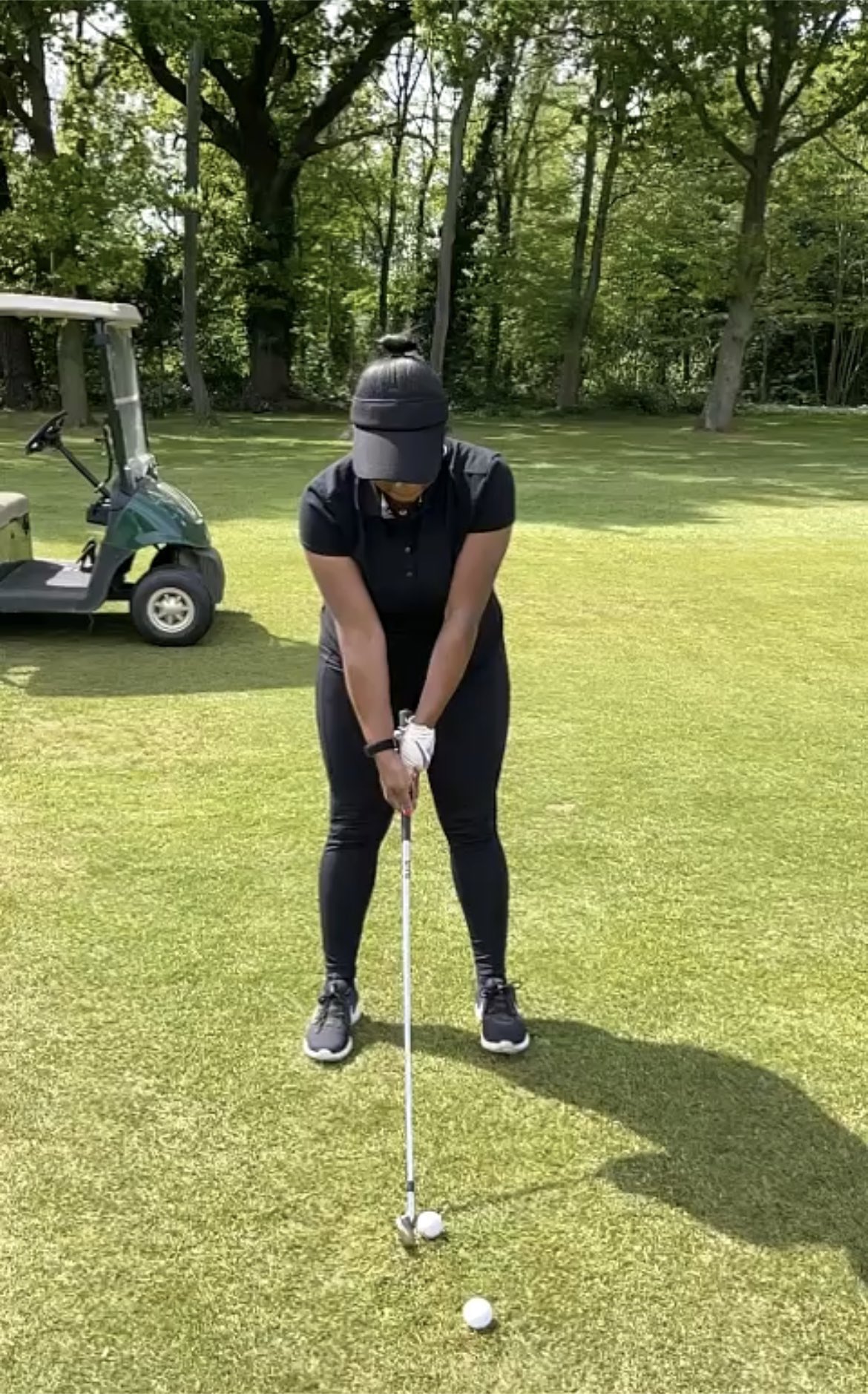 Genelle at Finchley Golf Club. Photo: Anonymous
Genelle at Finchley Golf Club. Photo: Anonymous
Lynne, meanwhile, agrees with her on golf’s mental health benefits: “It takes you away from other things in your life, I suppose.” Her favourite time to play is early in the morning: “It’s just so beautiful out there. You can’t think about anything else.”
For those who want to be similarly transported, it may not be as difficult (read: expensive) as you might think. Finchley, for instance, is immensely proud of its 2 for 1 offer for women (sign up with a friend, and only pay one membership fee). There are also plenty of junior discounts, and the Girls Golf Rocks scheme runs courses for children and teenagers costing just £35 each.
Taryn, who is working to establish links between her school and local golf courses, is optimistic. “I get on the train at Vauxhall,” she says, “and there are women stepping on in the evening with golf clubs, they’re going and giving it a go – and these women are in their twenties.
“I’m really excited about what that’s going to mean in the long term, especially for my daughter.”
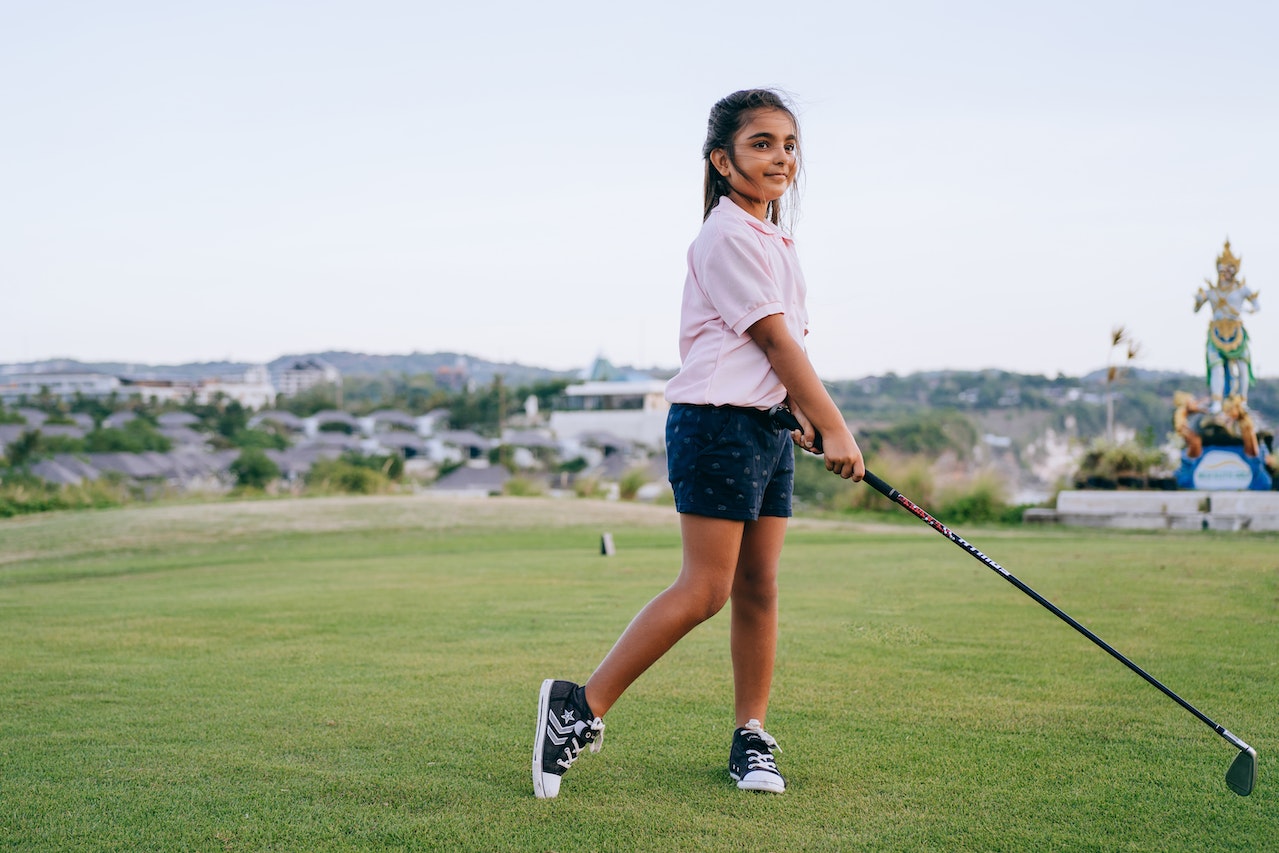 Photo: Mikhail Nilov
Photo: Mikhail Nilov
Meanwhile, in the short term, there are at least some post-lockdown converts who have no intention of giving up. Genelle is one of them, and she’s keen to get as many women as possible to join her on the course.
“I feel like my brain’s going so fast, all the time,” she says, as we likewise hurtle to the end of our all-too-brief phone call. “Life is so fast. Golf makes you slow down.”
Post a comment